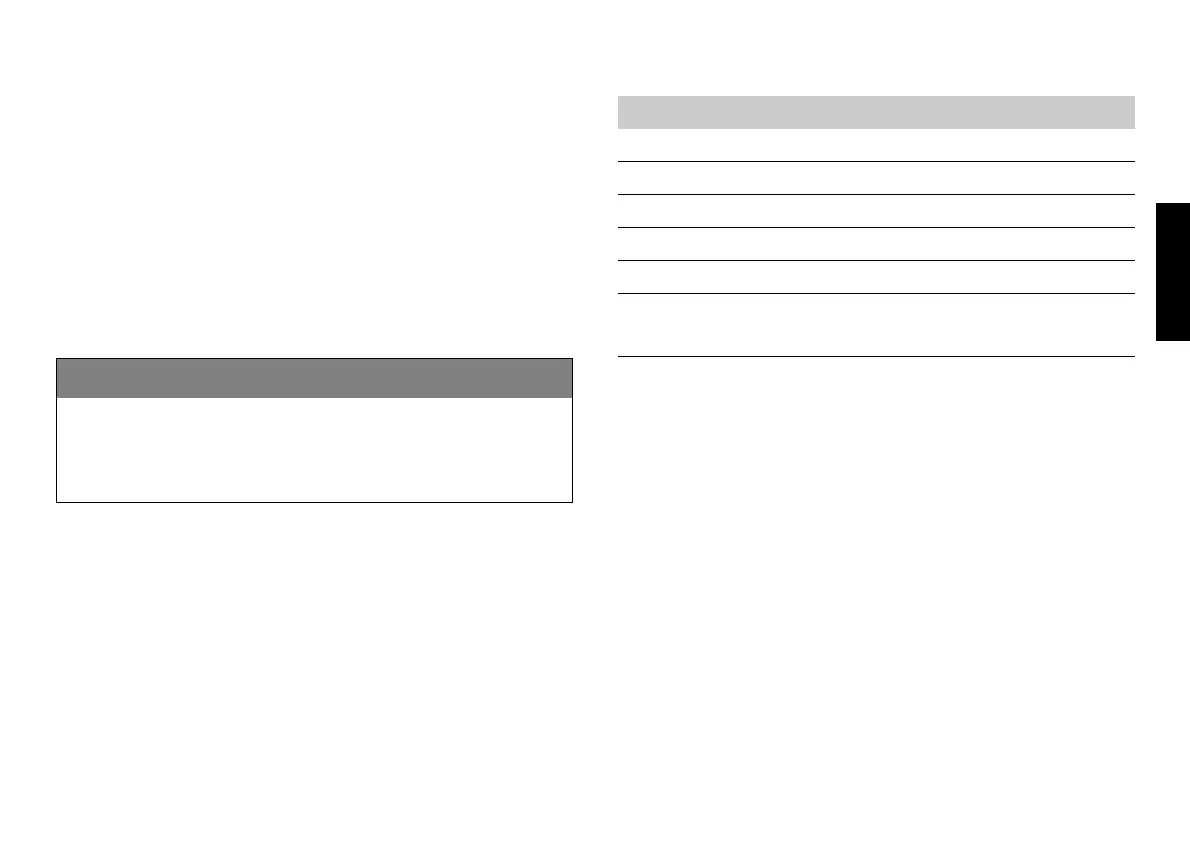31
ENGLISH
(3)The amounts indicated refer to initial refuelling, and include filling
the engine, sump and filter.
(4)Use STANDARD fuel compliant to the EN 590 (2005/55 - 2005/
78). The use of additives is discouraged. A fuel known as BIO DIESEL
is allowed only if it is compliant with the EN EN 14214 - ASTM 6751
norm, mixed in standard fuel with a maximum percentage of 20%.
Contact the FPT commercial network if KEROSENE-based fuel
known as XF63, F63, F34, F35, JP8 are to be used.
Only the use of mixtures containing suspension water is permitted,
as indicated in the CUNA NC 637-01 (GECAM) and AFNORM 5-
02 (AQUAZOLE) norms, in a maximum percentage of 12% and by
using special additives. A 12% performance reduction is foreseen.
Low temperature diesel
EN590 specifications distinguish different classes of diesel fuel,
identifying the characteristics of those best suited to low temperatures.
It is entirely up to the Oil companies to comply with these regulations,
which foresee that fuels suited to the climactic and geographic
conditions of the various Countries be distributed.
FREQUENCY
The maintenance intervals indicated below take into account the
typical working factors for various types of engine use; the most
suitable interval for maintenance operations for the various
applications will be indicated by the maintenance staff, according to the
way and working conditions in which the engine is used.
WARNING
Refuelling from drums or tanks may result in pollution of the diesel
fuel, with the risk of damage to the injection system; if necessary, filter
the fuel in a suitable manner or allow sedimentation of the impurities
before refuelling.
Controls (when in use)
Frequency
Check oil level in engine Daily
Check coolant level Daily
Check that the heat exchangers are clean Daily
Check that the air filter is clean Daily
Drain water from the fuel pre-filter 150 hours
(1)
Check/top up electrolyte level
in batteries and clean terminals
Half-yearly
